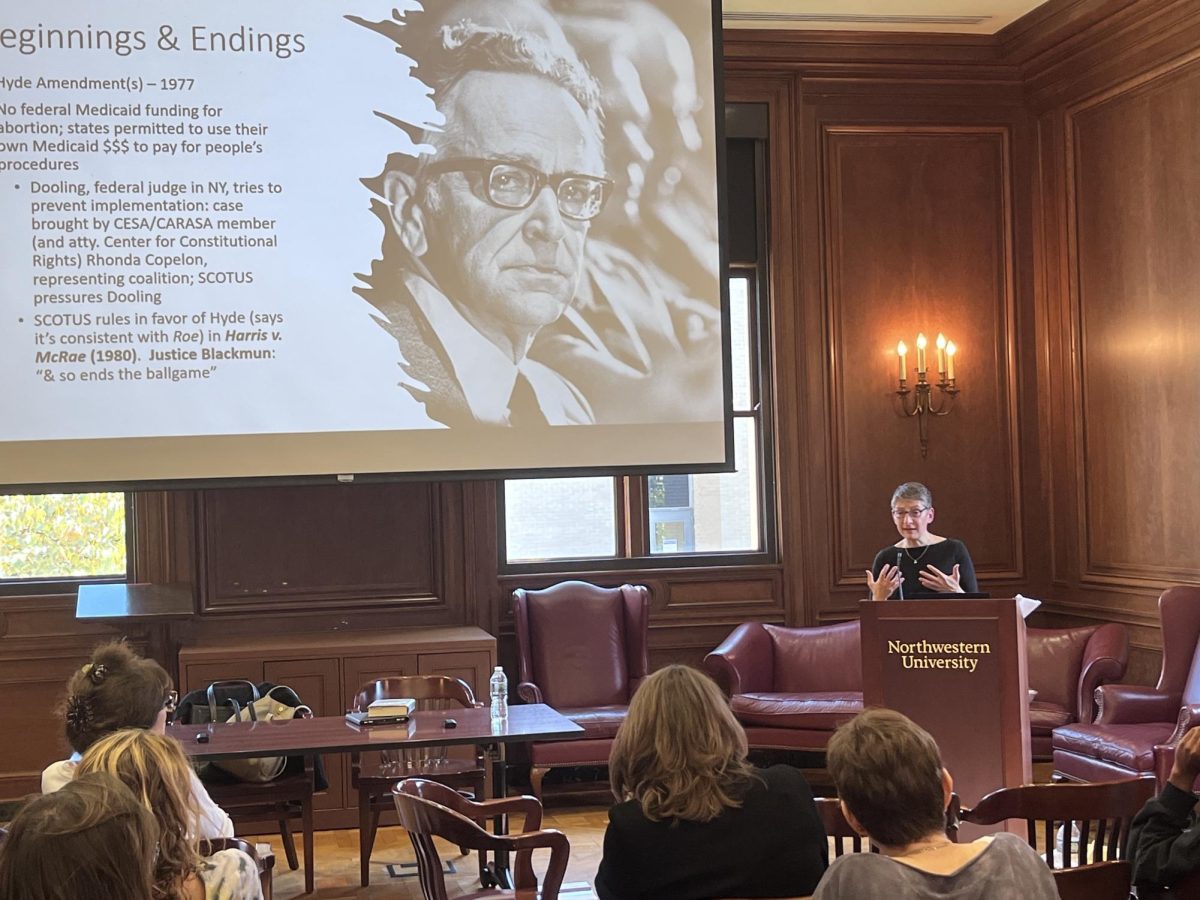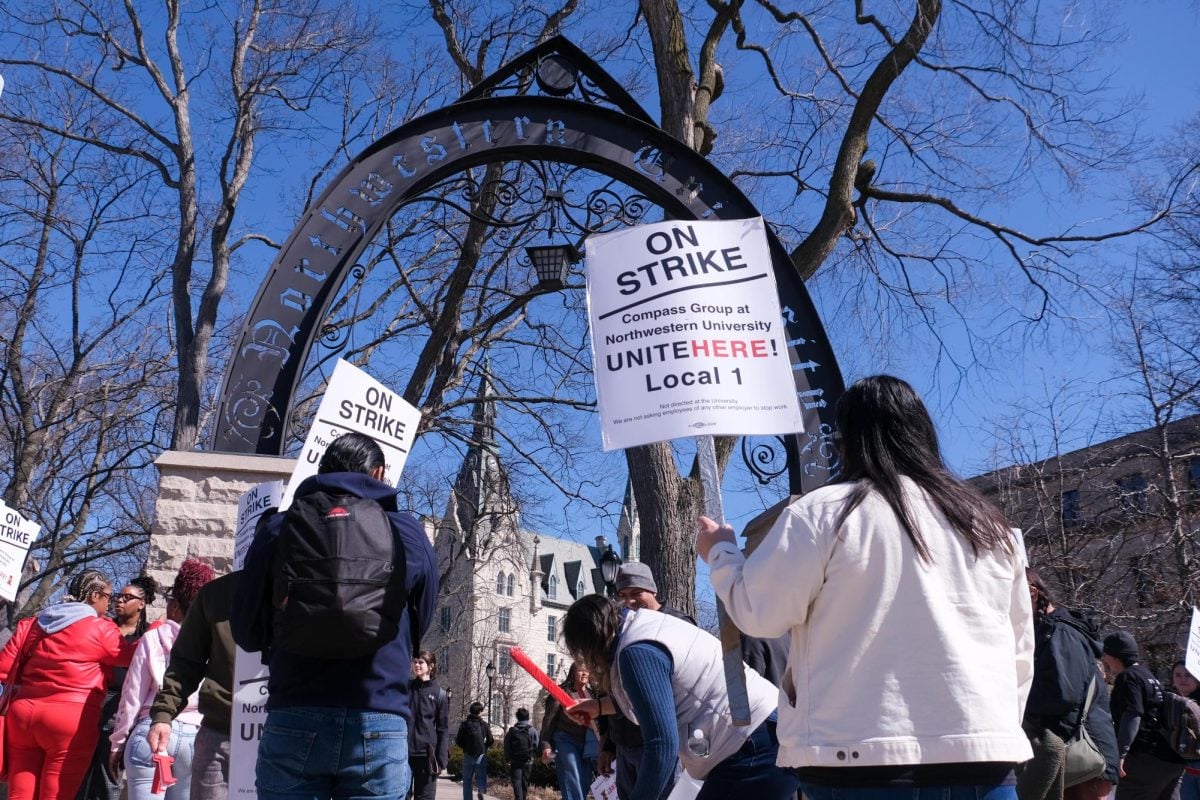Northwestern faculty, staff and students gathered at Harris Hall Tuesday for a talk with University of Vermont Prof. Felicia Kornbluh on their latest book about the defining historical moments of reproductive justice.
Kornbluh, a professor of history, gender and sexuality and women’s studies, recently released “A Woman’s Life is a Human Life: My Mother, Her Neighbor, and the Journey from Reproductive Rights to Reproductive Justice.” They have also co-authored three other books and serve as the vice president of the board of Planned Parenthood of Vermont Action Fund.
Kornbluh wrote they set out to address the often “invisible” events that came to define reproductive justice before and after the decision of Roe v. Wade.
Alluding to stories of activists in New York, they focused on women and gender sexuality motions and reproductive politics, including interdisciplinary legal studies about abortion rights and sterilization abuse.
“I looked at reproductive rights before Roe, beyond Roe, besides Roe and thought about the victories of reproductive rights and justice as occurring inside and outside of traditional legal venues pursued by legal personnel and any other people,” Kornbluh said.
Kornbluh’s mother, a feminist lawyer, wrote the first draft of the New York law that decriminalized abortions. Their former neighbor, Dr. Helen Rodríguez-Trías, was a physician who helped pave the way for the movement against sterilization abuse.
Kornbluh said people’s understanding of reproductive rights today is largely, however, limited to Roe v. Wade.
“We misunderstand the legal history of these issues because Roe v. Wade is so central to our historical understanding,” they said. “It sort of has blocked our view of everything else.”
They said the Supreme Court’s decision followed a much longer period of political activism involving a “forgotten generation of feminist litigation in the federal courts.”
“If you want to make social change, if you want to make legal change, there are so many ways in our system that we can do that because there are so many venues with meaningful legal authority,” they said.
History Prof. Kate Masur said Kornbluh’s book left a lasting impact on her.
“The book is making a really important contribution to the history of abortion and reproductive rights in the United States,” she said. “It sheds light on a part of history that we need to know more about.”
Medill sophomore Simone Garber echoed this sentiment.
Garber said her main takeaway was that there is more to the history of reproductive rights than just Roe v. Wade.
“There are so many other facets of the abortion movement just as important that we should still consider,” Garber said.
Email: jerrywu2027@u.northwestern.edu
Twitter: @Jerrwu
Related Stories:
— Evanston voters show up to the polls for reproductive rights, ranked-choice voting
— Student leaders, staff discuss new Gender Sexuality Resource Center, safe spaces on campus







